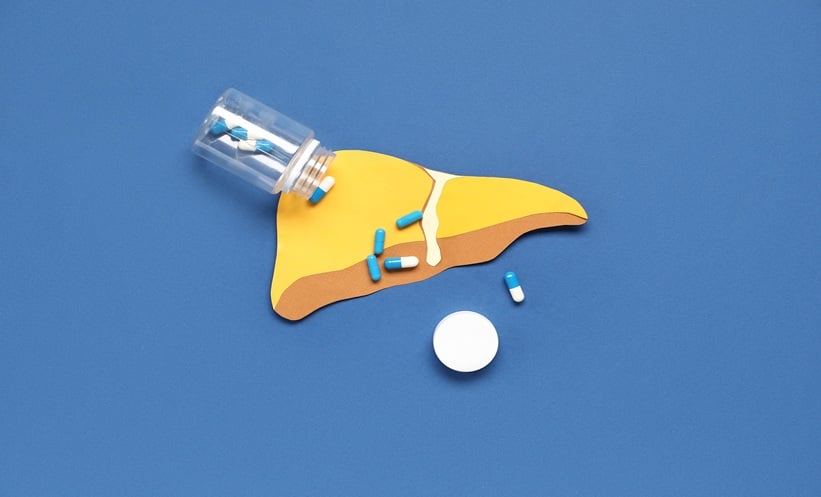A NEW international study has shed light on the frequency and clinical impact of liver inflammation “flares” in patients with chronic hepatitis D undergoing treatment with pegylated interferon-alpha (PEG-IFNa). The HIDIT-II Phase 2 trial followed 120 patients over 96 weeks and offers reassurance that these flares, while relatively common, do not appear to compromise patient safety.
ALT flares, defined as sharp increases in liver enzyme alanine aminotransferase (ALT), were observed in 28 patients (23%) during treatment and in 14 more during the post-treatment follow-up. These flares were equally distributed between those who received PEG-IFNa with placebo and those who received it alongside tenofovir disoproxil fumarate (TDF), suggesting no added risk from combination therapy.
Importantly, the study found that cirrhotic patients, those with advanced liver scarring, were not more susceptible to flares, and none experienced liver decompensation as a result. In fact, over half of the patients who experienced a flare also demonstrated a significant reduction in hepatitis D virus (HDV) RNA, pointing to a possible therapeutic benefit.
Patients who eventually achieved HBsAg (hepatitis B surface antigen) loss, a key marker of viral clearance, also had higher ALT levels earlier in treatment, further hinting that controlled flares might correlate with improved outcomes.
These findings suggest that ALT flares, while frequent, are not a reason to stop treatment early and could even signal treatment effectiveness in some individuals. The authors urge caution, however, and call for more research to determine whether such flares should be interpreted as positive indicators or simply monitored for safety.
The HIDIT-II study was funded by the HepNet Study-House, the German Liver Foundation, and supported by pharmaceutical companies F. Hoffmann-La Roche and Gilead Sciences.
Reference
Hardtke S et al. Frequency, Severity and Impact of Pegylated Interferon Alpha–Associated Flares in Hepatitis D Infection. JVH. 2025;DOI: 10.1111/jvh.70022.








